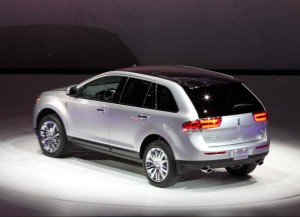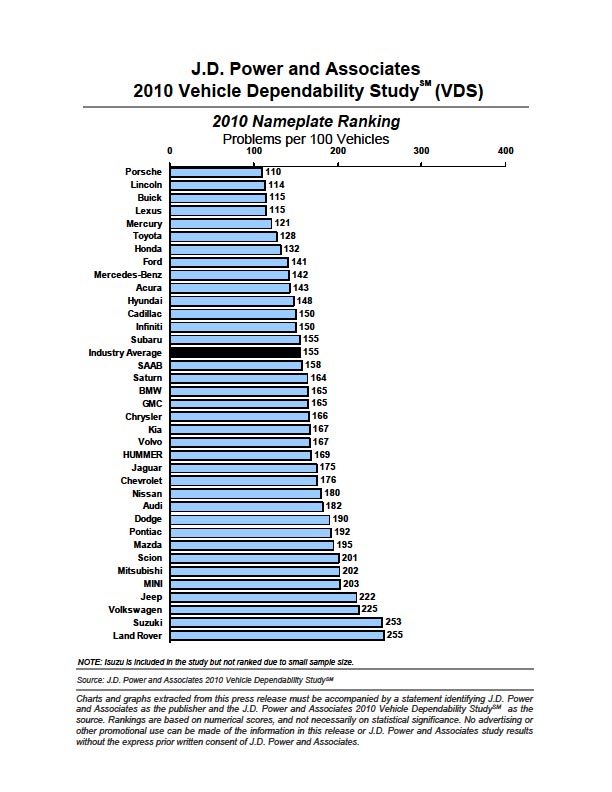Perceptions often lag reality, especially in the auto industry, where some brands have far more quality problems than their image might reflect – and other have markedly better reliability than their reputation would suggest.
So, the results of the latest annual Vehicle Dependability Study, from J.D. Power and Associates, may take many folks by surprise.
The 2010 VDS, which looks at problems owners have experienced with three-year-old vehicles, finds Japanese makers capturing nine segment awards, while Detroit makers win seven and Europeans three. But, more notably, the study reveals that a number of Detroit and Korean brands are performing far better than conventional wisdom might suggest.
“Producing vehicles with world-class quality is just part of the battle for automakers, said David Sargent, JDPA’s vice president of global vehicle research. But, he adds, convincing consumers to believe in their quality is equally as important.”
It also can be more difficult, says the researcher, pointing to Korea’s Hyundai, as well as Detroit’s Cadillac, Ford, Lincoln and Mercury brands. Power data show these high-scoring marques have the greatest gap between what consumers think and their actual reliability scores. Caddy, Ford and Mercury all took top honors in one of the VDS’s vehicle categories. Mercury took two.
All five of those brands scored above average, based on the survey of more than 52,000 original owners. Lincoln scored second overall, behind this year’s top marque, Porsche, and just slightly ahead of third-place General Motors brand Buick. Significantly, Lexus, the Toyota nameplate long synonymous with both short-term quality and long-term reliability, slipped into the fourth spot. But the gap between the top five brands was incredibly tight, and Lexus still was able to grab one segment win.
Its sibling brand, Toyota, slotted into sixth, meanwhile, but despite the ongoing debate about the Japanese maker’s quality and safety, Toyota captured four segment wins, more than any other brand.
Other segment winners included Honda, with three, and Audi, BMW, Buick, Chevrolet and Mazda, with one each.
Overall, the 2010 Vehicle Dependability Study shows a 7% improvement in the score of the typical 3-year-old model – produced during the 2007 calendar-year. Power counts up “problems” reported by owners, with the latest tally coming in at 155 problems per 100 vehicles, or 155 PP100 in the research firm’s lingo. A year ago, the average was 167 PP100. Of 36 brands covered by the latest VDS, 25 showed improvement over the 2009 study.
“The improvements in long-term dependability and component replacement rates are good news for both consumers and manufacturers,” said Sargent. “Manufacturers benefit from lower warranty expenses, while consumers incur lower maintenance and repair costs, as well as less inconvenience.”


